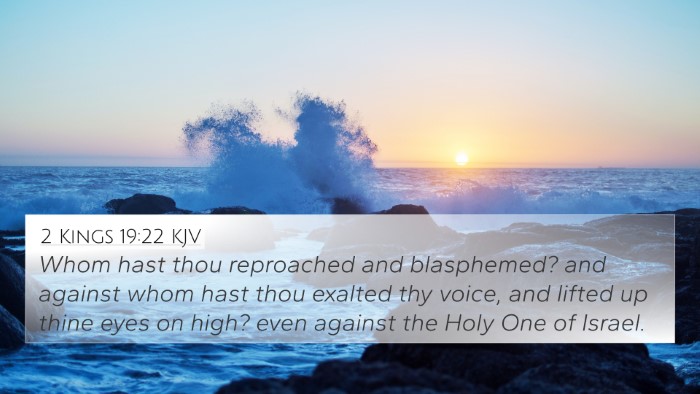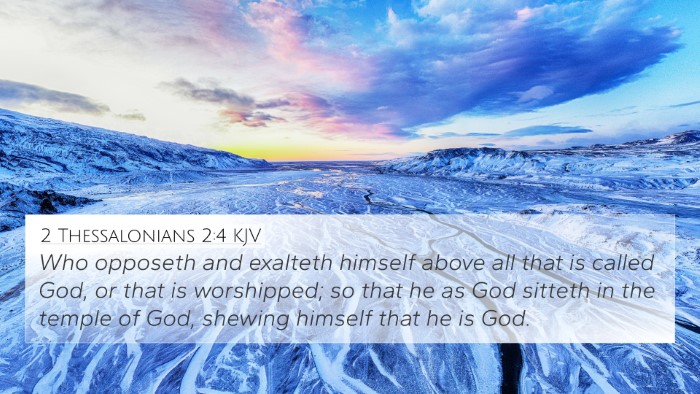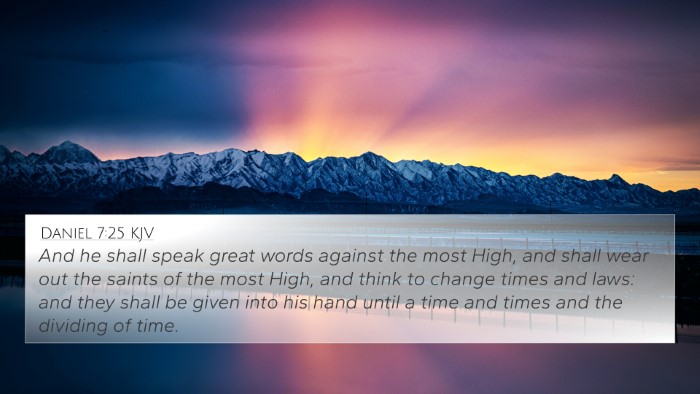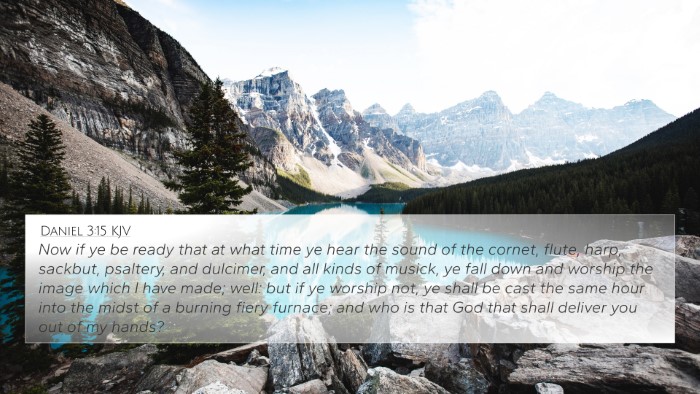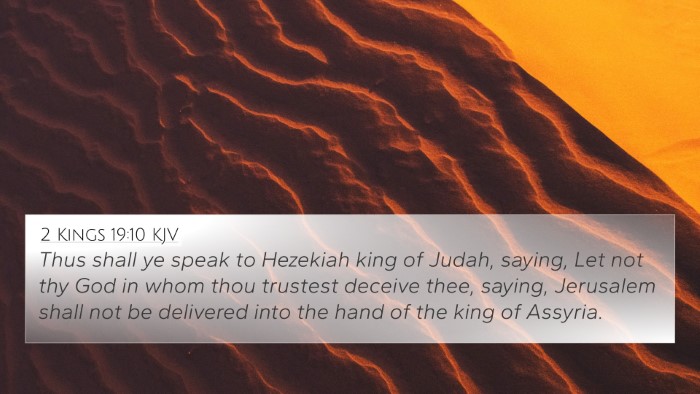Understanding Isaiah 36:14
Isaiah 36:14 states, "Thus saith the king, Let not Hezekiah deceive you: for he shall not be able to deliver you." This verse emerges from a critical juncture during the Assyrian siege of Jerusalem, where the king of Assyria attempts to undermine King Hezekiah's assurances to his people regarding deliverance from their enemies.
To interpret this verse, we can draw insights from various public domain commentaries, providing a comprehensive understanding of its implications and connections with other Bible verses.
Commentary Insights
-
Matthew Henry:
Matthew Henry emphasizes that the Assyrian king aimed to instill fear and doubt among the people of Jerusalem. He uses this proclamation to challenge Hezekiah's faith and to promote a narrative of hopelessness in the face of divine intervention.
-
Albert Barnes:
Barnes notes that the Assyrian monarch was utilizing psychological warfare, suggesting that Hezekiah's attempts to invoke trust in the Lord were futile. This verse reflects the broader theme of trusting God versus the intimidation of worldly powers, showcasing the tension between faith and fear.
-
Adam Clarke:
Adam Clarke points out the implication that Hezekiah's faith and confidence were being directly challenged by this assertion. Clarke highlights how this confrontation was pivotal for the people of Jerusalem, as they had to decide whether to believe the king's verbal assaults or trust in God's promise of protection.
Bible Verse Parallels
Isaiah 36:14 can be further understood through cross-references with several other verses that deal with themes of faith, trust, and the dynamics between divine support and worldly fears. Here are some relevant cross-references:
- Isaiah 37:6-7 - God's response to the threats of the king of Assyria.
- 2 Kings 18:20 - Similar themes of undermining Hezekiah's leadership are presented.
- 2 Chronicles 32:15 - Hezekiah's trust in God amidst Assyrian threats.
- Psalms 46:1 - God as a refuge and strength in times of distress.
- Jeremiah 17:5 - The curse of trusting in man versus the blessing of trusting in God.
- Matthew 10:28 - Fear Him who can destroy both soul and body; the focus on trust beyond worldly threats.
- Philippians 4:6-7 - Encouragement to not be anxious, but to make requests known to God, reflecting reliance on divine support.
Connections Between Bible Verses
The connections between Isaiah 36:14 and other verses elucidate a consistent biblical theme of faith overshadowing fear. Understanding these links is critical for deeper scriptural study:
The psalmist's confident declaration in Psalms 56:11, “In God have I put my trust: I will not be afraid what man can do unto me,” resonates strongly with the confrontation presented in Isaiah 36:14. Similarly, the societal pressures reflected in Proverbs 29:25, cautioning against the fear of man, encapsulate the broader narrative of reliance on God.
Thematic Bible Verse Connections
Through the lens of faith, the juxtaposition of Hezekiah’s trust against the threats from the Assyrians portrays a powerful theme of perseverance. It highlights the need for deliberate reliance on divine assurance, as seen similarly in the lives of biblical figures like Daniel in the lion's den and the three Hebrew boys in the fiery furnace, who stood firm in faith despite intimidation.
Conclusion
Isaiah 36:14 serves as a stark reminder of the challenge of faith in the face of overwhelming opposition. The verse encourages believers to reflect on the assurance found in God amidst worldly fears. By studying interconnected scriptures, one can cultivate a deeper understanding of the biblical narrative that champions faith, trust, and divine deliverance.
For those engaged in cross-referencing Biblical texts and seeking comprehensive Bible cross-reference materials, the connections and insights derived from Isaiah 36:14 provide a formidable foundation for studying themes of divine protection and encouragement found throughout the Scriptures.



